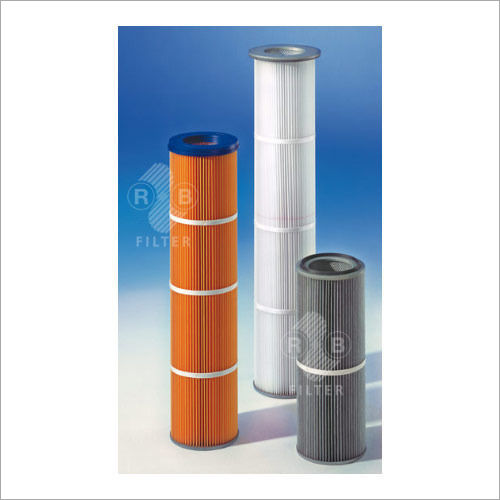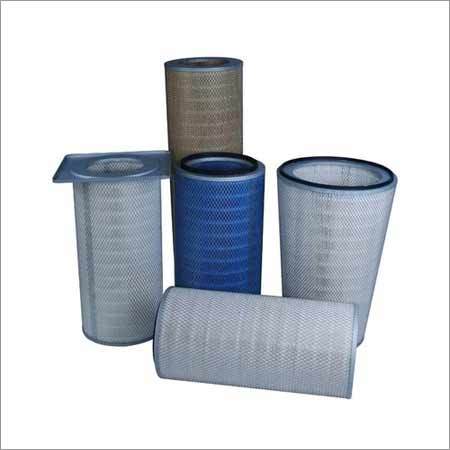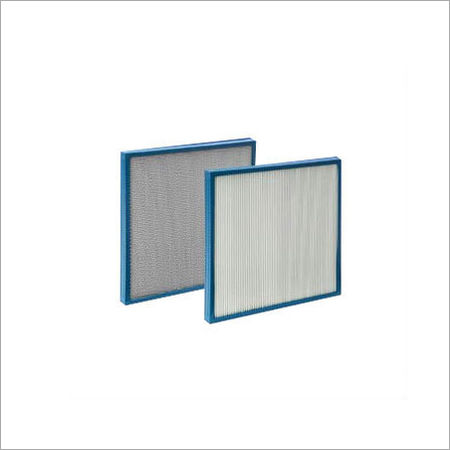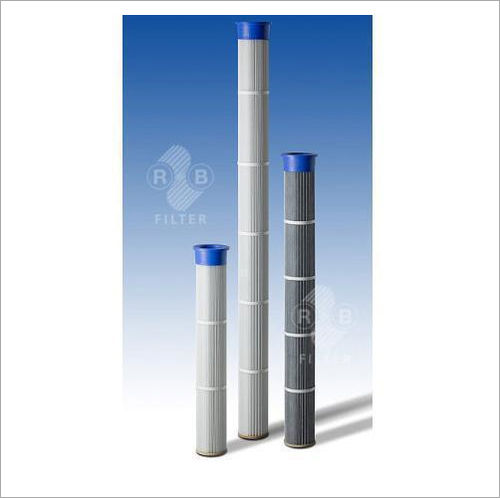GST : 24AADCR2517B1Z0

Powder Coating Filter Testing
4000.0 INR
Product Details:
- Usage For Powder coating
- Condition New
- Material Polyester
- Size As per customer requirement
- Product Type Pleated Filter Cartridge
- Construction Cartridge Filter
- Color White and Silver
- Click to view more
X
Powder Coating Filter Testing Price And Quantity
- 4000.0 INR
- 5 Kilograms
Powder Coating Filter Testing Product Specifications
- Against Manufacturing defects
- Cartridge Filter
- Polyester
- For Powder coating
- Cylindrical
- White and Silver
- Pleated Filter Cartridge
- As per customer requirement
- New
- Standard
Powder Coating Filter Testing Trade Information
- Mundra
- Cash Advance (CA)
- 35000 Kilograms Per Year
- 1-2 Week
- Yes
- Contact us for information regarding our sample policy
- Corrugated box packing
- Australia, North America, South America, Middle East, Central America, Asia, Africa
- All India
- ISO 9001:2015 and MSME Certified
Product Description
A powder coating filter is a sort of painting that is appealing, efficient, and long-lasting. Powder coating is considered an environmentally benign finishing solution when compared to other paint kinds that involve solvents and volatile organic compounds. This has a high level of durability and dependability too. A powder coating filter can provide significant value to our customers throughout the duration of their applications service life. The main benefit of employing a cartridge filter is keeping the filters clean and allowing particles to be reclaimed rather than stuck in the filter media.
Powder Coating Filter Applications:
- Air Filtration: Powder coating operations generate airborne particles, including overspray and contaminants. Filters are used to capture these particles, preventing them from escaping into the environment and maintaining air quality in the workspace.
- Overspray Collection: During the powder coating process, overspray occurs when not all powder adheres to the workpiece. Filters trap overspray particles, allowing clean air to be recirculated back into the system or exhausted safely.
- System Efficiency: By capturing overspray and contaminants, filters help maintain the efficiency of powder coating equipment. Clogged or dirty filters can impede airflow, leading to decreased system performance and potentially affecting the quality of the coating.
- Environmental Compliance: Proper filtration is often a regulatory requirement to ensure compliance with environmental regulations regarding air quality and emissions. Powder coating filters help businesses adhere to these standards by capturing particles and preventing their release into the atmosphere.
- Quality Control: Clean air is crucial for achieving high-quality powder coating finishes. Filters play a significant role in removing contaminants that could compromise the integrity of the coating, resulting in a smoother, more consistent finish.
Types of Filters Used in Powder Coating Systems:
- Pre-filters: These filters are typically the first line of defense against larger particles and overspray. They capture coarse particles, preventing them from reaching more delicate filters downstream.
- Fine Filters: Fine filters capture smaller particles that may have passed through pre-filters. They enhance air quality by trapping finer contaminants, ensuring a cleaner working environment and improving coating quality.
- HEPA Filters: High Efficiency Particulate Air (HEPA) filters are capable of capturing extremely small particles, including fine powders and contaminants. They are often used in powder coating systems where strict air quality standards must be met.
- Cartridge Filters: Cartridge filters are commonly used in powder coating booths and recovery systems. They offer high efficiency in capturing overspray and can be easily cleaned or replaced when necessary.
- Bag Filters: Bag filters are another type of filter used in powder coating systems. They are effective in capturing overspray and contaminants and are available in various sizes and configurations to suit different applications.
Powder Coating Filter FAQ:
Q. What is the purpose of powder coating filters?
Ans: Powder coating filters are used to capture overspray and airborne particles generated during the powder coating process. They help maintain air quality, system efficiency, and environmental compliance while ensuring high-quality finishes.
Q. What types of filters are used in powder coating systems?
Ans: Powder coating systems typically use a combination of pre-filters, fine filters, HEPA filters, cartridge filters, and bag filters. Each type serves a specific purpose in capturing particles of varying sizes and ensuring efficient filtration.
Q. How often should powder coating filters be replaced or cleaned?
Ans: The frequency of filter replacement or cleaning depends on factors such as the volume of coating operations, the type of filters used, and the level of contamination. Regular monitoring of filter performance and following manufacturer recommendations are essential for maintaining optimal filtration efficiency.
Q. How do I know when its time to replace or clean powder coating filters?
Ans: Signs that indicate the need for filter maintenance include reduced airflow, visible buildup of overspray on filters, increased pressure drop across filters, and decreased coating quality. Regular inspection and monitoring of filter condition help identify when maintenance is required.
Q. Can powder coating filters be cleaned, or do they need to be replaced?
Ans: Many powder coating filters are designed to be cleaned and reused multiple times before replacement is necessary. However, some filters may need to be replaced depending on their condition and the type of contaminants they capture. Follow manufacturer guidelines for proper cleaning and replacement procedures.
Q. How should powder coating filters be cleaned?
Ans: Cleaning methods for powder coating filters vary depending on the filter type and manufacturer recommendations. Common cleaning methods include reverse pulse cleaning for cartridge filters, shaking or tapping for bag filters, and washing or vacuuming for some types of fine filters. Its important to use appropriate cleaning techniques to avoid damaging the filters.
Q. Are there any safety precautions to consider when handling powder coating filters?
Ans: When handling powder coating filters, its essential to wear appropriate personal protective equipment (PPE), such as gloves and respiratory protection, especially if filters are contaminated with potentially hazardous materials. Follow safety guidelines provided by the manufacturer and ensure proper disposal of used filters according to regulations.
Q. Can I install different types of filters in my powder coating system?
Ans: Its important to consult with the manufacturer of your powder coating system or a filtration specialist to determine the compatibility of different types of filters with your equipment. Using filters that are not suitable for your system may result in reduced performance or potential damage.
Q. How can I optimize the performance of my powder coating filters?
Ans: To optimize filter performance, maintain a regular schedule for filter inspection, cleaning, and replacement. Ensure proper airflow within the powder coating system, monitor filter efficiency over time, and address any issues promptly to maintain consistent coating quality and system efficiency.
Precise Filtration for Powder Coating
Engineered for robust powder coating operations, our cartridge filters ensure the highest standard of filtration quality. Made from durable polyester and crafted in a cylindrical form, they effectively capture airborne particles, contributing to cleaner work environments and consistent powder application.
Custom-Tailored to Suit Your Needs
Every filter is available in sizes specified by the customer, ensuring seamless integration within your equipment. Whether you require compact or large-diameter filtration, our design flexibility meets the technical demands of diverse powder coating systems, supporting operational efficiency.
FAQs of Powder Coating Filter Testing:
Q: How is the powder coating filter tested for quality and performance?
A: Every powder coating filter undergoes rigorous testing to ensure efficient particle retention, optimal airflow, and durability. We perform air permeability, filtration efficiency, and structural integrity assessments before dispatching to confirm compliance with industry standards.Q: What materials are used in the construction of this filter?
A: Our filters are constructed from high-quality polyester, chosen for its excellent filtration capabilities, durability, and resistance to powder abrasion in coating applications. The cylindrical cartridge construction further enhances its utility in industrial settings.Q: When should I replace my powder coating filter?
A: Filters should be replaced when you notice reduced airflow, inconsistent powder coverage, or accumulation of dust particles despite cleaning. Regular inspection during maintenance intervals is recommended to maintain system integrity and coating quality.Q: Where can these powder coating filters be used?
A: These filters are primarily designed for use in powder coating plants and facilities. They are suitable for a wide range of industrial environments where powder application and air filtration are critical to operational performance.Q: What is the process involved in producing custom-sized filters?
A: We collaborate closely with customers to understand their sizing requirements. Filters are manufactured using automated equipment and quality-controlled procedures, ensuring each custom-sized cartridge meets your systems specifications and our performance criteria.Q: How do I benefit from using a polyester cartridge filter in powder coating?
A: Polyester cartridge filters provide enhanced filtration, extended lifespan, and resistance to powder accumulation. This results in cleaner workspaces, efficient coating processes, and reduced downtime for maintenance, maximizing operational productivity.Tell us about your requirement

Price:
Quantity
Select Unit
- 50
- 100
- 200
- 250
- 500
- 1000+
Additional detail
Mobile number
Email






 Call Me Free
Call Me Free
